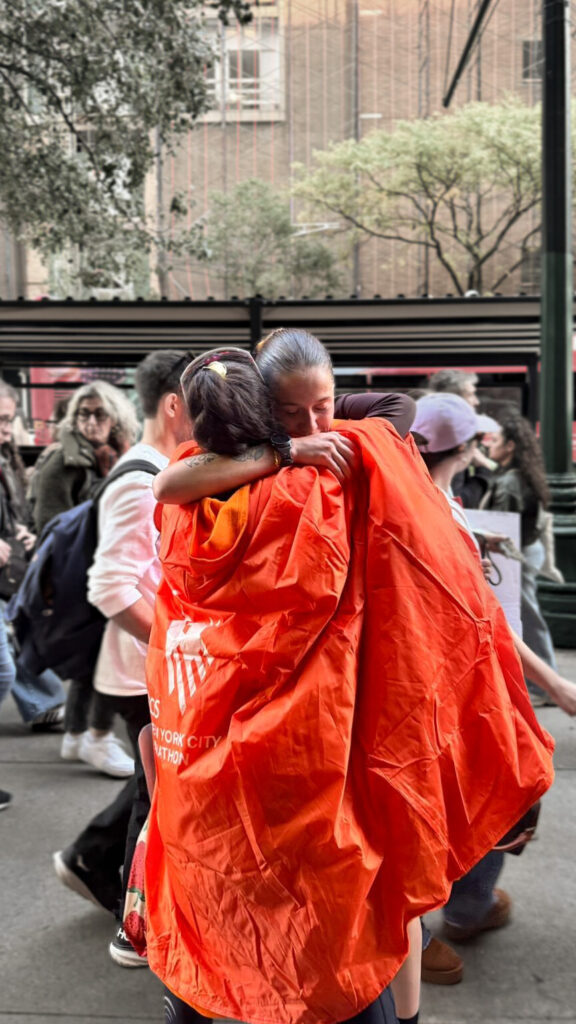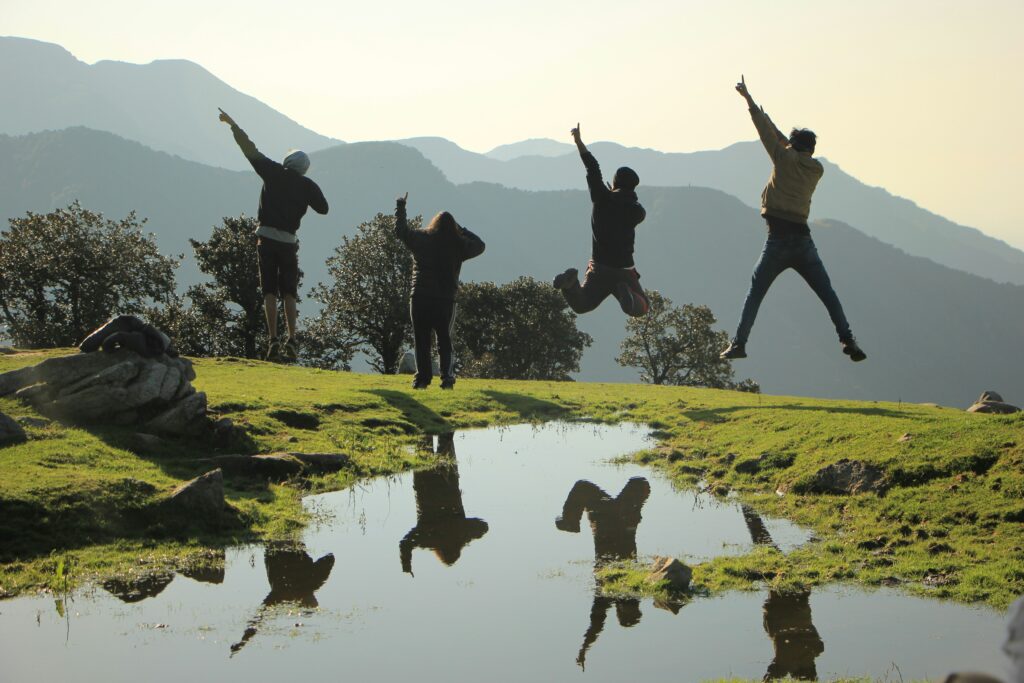Communities in the mountainous region of Chiapas, Mexico are geographically isolated, impoverished, and lack access to quality healthcare. To address this, Compañeros en Salud (CES), the Mexican branch of the NGO Partners in Health, connects these communities to critical healthcare services by supplying doctors to local clinics and employing community healthcare workers.
With the support of an InterExchange Christianson Fellowship, I volunteered with CES to support 45 community health care workers or las acompañantes (someone who accompanies another) who worked with chronic patients, pregnant women, and provided early childhood stimulation classes. Many of my most meaningful experiences came from shared time with these outstanding women.
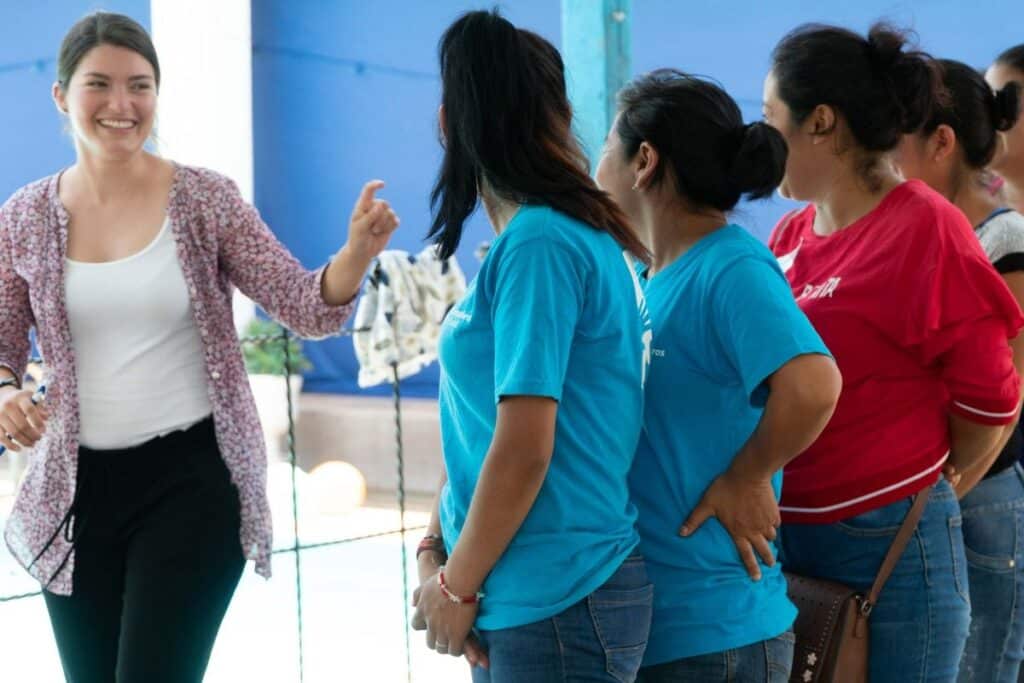
Image courtesy of Sarah Rachel Gallegos
When I first arrived in Chiapas, I did a lot of training and learning on the job. The community health workers all grew up in these small agricultural communities where interpersonal relationships are paramount. I learned it was necessary to constantly socialize to build strong personal relationships so that our professional relationship would run smoothly.
As an American outsider who did not speak perfect Spanish, it was difficult for me at the beginning to understand how to build these relationships—it seemed that we didn’t have much to talk about. The community health care workers have varying degrees of education, ranging from primary to high school. They cook with much more proficiency than I could hope. Almost all have children (especially by my age of 23), and all are impacted by the widespread machismo that plagues their communities. Needless to say, we have very different life experiences. They were wary of me—a new person—and not everyone immediately opened up.
Moreover, life moves at a slower pace in the Mexican sierra, which I was not used to coming from the time-obsessed United States. I wasn’t sure when I was taking up too much of someone’s time and when the long pauses between topics grew too long.
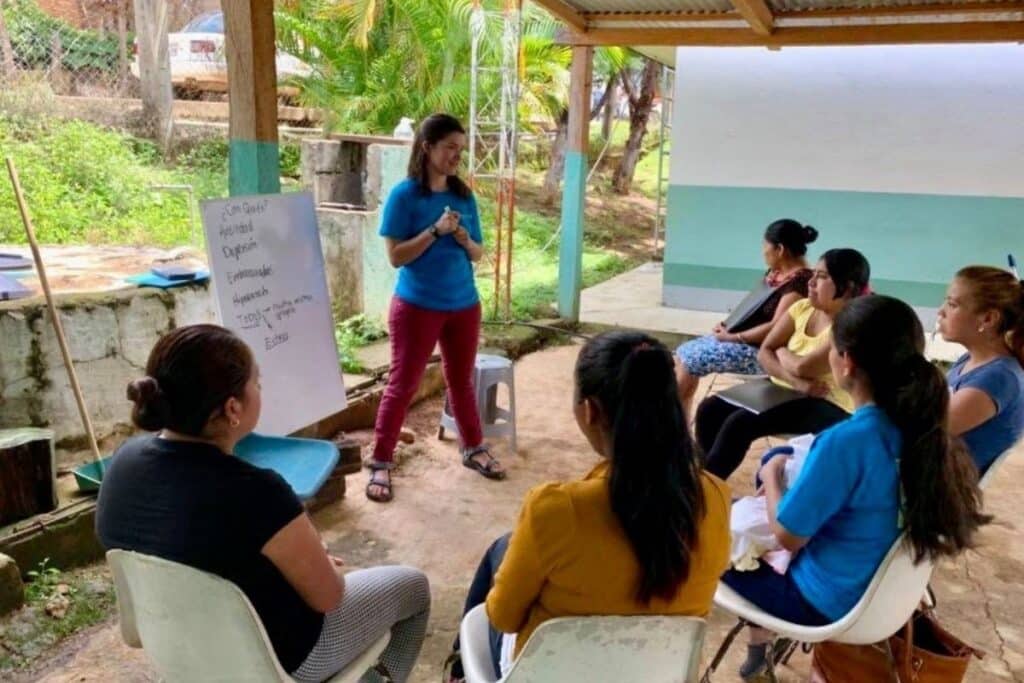
Image courtesy of Sarah Rachel Gallegos
In the health trainings, I didn’t have a good sense of the background knowledge of the community health workers. I would consistently make Spanish grammar and vocabulary mistakes, but it surprised me when they didn’t know specific words like anatomía (anatomy) or retroalimentación (feedback). I sometimes didn’t realize that they didn’t know a specific term until after a whole training focused on that very term. Many community health workers knew much more about specific medications than I did because they had helped patients with chronic diseases for years, but they often lacked knowledge about the physiology of the diseases or confused myths with facts.
Each month, I found myself more competent and confident. I learned how to interact with and what expectations to have for the community health workers, and how to give basic social-justice-based health trainings. I stayed longer and longer at community health workers’ homes and formed friendships. I developed trust with these women as I put forward an honest effort to advocate for their needs and those of their patients.

Image courtesy of Sarah Rachel Gallegos
When someone was lacking in their effort, I learned how to motivate her to ensure she completed the job responsibilities. I also learned when to make exceptions and be understanding of personal situations. My health trainings became more and more successful. I learned to better fill in the gaps in their knowledge and was more observant as to whether or not they understood the technical terms.
I’m particularly proud of the growth that I saw from individual community health workers and across the community health program that occurred over the course of my time with Compañeros en Salud. I had the difficult but incredibly fulfilling role of interviewing women interested in the community health worker role and selecting five new health workers this year, taking part in their initial trainings and giving them specialized follow-up trainings as they gained skills in their new roles.
In the rural community Matasano, I helped train a new community health worker to lead early childhood stimulation classes. She holds weekly sessions for children under 3 years old, where she leads their mothers in exercises and songs—not an easy task! In the beginning, she would sheepishly sing and lead exercises without much authority. We sat for hours practicing children’s songs and activities that I had just learned. Eventually, she grew to confidently lead classes of mothers with distracted and crying toddlers.
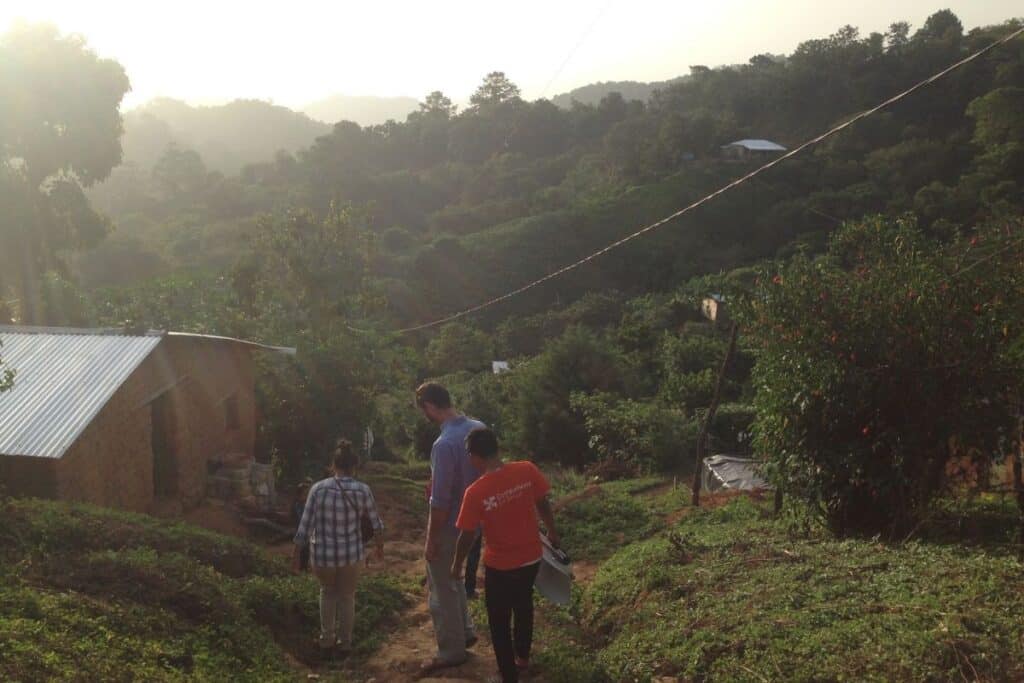
Image courtesy of Sarah Rachel Gallegos
In the beginning of my service, I often felt unsure of my abilities, whether social or professional (which I learned are incredibly intertwined), but I overcame many of those challenges because of the inspiring community health workers. I realized that my job really centered on empowering these women in their jobs and lives. I learned to supervise as I liked to be supervised—supporting not only professional development but also personal development. Seeking to empower the community health workers and viewing their work holistically are my greatest achievements.

